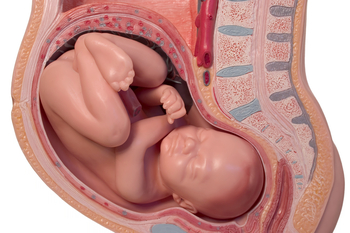The brain is responsible for higher motor and sensory functions. It requires a constant source of oxygen in order to continue its vital functions. When the flow of oxygen is interrupted, the consequences can be devastating. Severe injury can occur when the brain lacks the oxygen needed to continue functioning. A total lack of oxygen can be referred to as “anoxic” injury whereas a partial lack of flow can be referred to as “hypoxic” injury.
Brain injury can occur in an unborn baby if the flow of oxygen from the mother’s circulation to the baby’s is interrupted. This can happen from a number of causes. For example, the placenta can become partially detached from the wall of the uterus (placental abruption), which can interrupt the flow of oxygen to the baby. This complication can arise in pregnant patients with untreated or inadequately treated high blood pressure. Close monitoring of mother and baby, along with timely delivery and/or C-Section when needed can prevent these complications.

Excessive contractions of the uterus (sometimes called “uterine hyperstimulation” or “tetanic contractions”) from labor, or from medicines used to accelerate labor, like pitocin, can cause problems with the baby’s oxygen supply. The rapid, powerful contractions of the uterus can prevent maternal oxygen from reaching the baby. If the flow of oxygen to the baby is interrupted, hypoxic or anoxic brain injury can occur. The consequences of this can be severe and may include seizures, brain damage, developmental delay, cerebral palsy, and other problems with motor or cognitive functions. Use of medications like pitocin must be closely monitored by dosage and effect on the mother and baby. If contractions are too strong or too frequent, the dosage may need to be decreased, the medicine may need to be stopped entirely, or special medication to reverse the effects may be given.
Brain injuries may occur in infants, children, and adults. Stroke, cardiac arrest, or choking can all interrupt the flow of oxygen to the brain. Patients who are undergoing surgery, or are in an intensive care unit in a hospital often have their oxygen levels monitored to be sure they are getting a sufficient supply. If they are not properly monitored or complications occur, hypoxic or anoxic brain injuries may result.
Medical malpractice that results in brain injury is devastating for the victim as well as families and loved ones. The extent of disability from hypoxic or anoxic brain injury varies greatly, but many people require extensive care and rehabilitation to regain function and improve their quality of life.
